Far, Not Fast: A Hostel Love Story
When Ryan and Jeri Lynn Owen opened the Far Not Fast Hiker Home in Elizabethton, TN, in March 2019, it was a big step in a long journey through war zones, family growth, separation, and emotional trauma.
For Ryan, it was a chance to put down roots after years of combat service in Iraq and Afghanistan. For Jeri Lynn, it was having her family together again after Ryan’s deployments. And for Ryan, Jeri Lynn, and their five children, it was a chance to give back to the Appalachian Trail community, where Ryan began to shed the aftereffects of combat while attempting a thru-hike with his family.
The story begins with the serendipitous meeting of Ryan Owens and Jeri Lynn Thompson.
Happy Beginnings
Ryan was attending school in Michigan—the same school that Jeri Lynn’s boyfriend was attending. When Jeri Lynn arrived to visit her boyfriend, he broke up with her. Though disappointed, while she was there she met Ryan and the two hit it off. Before she left, she gave Ryan her phone number.
The months went by and Jeri Lynn moved to Pennsylvania. She reconnected with Ryan, and the two began dating in December 1998. During that time, Ryan decided to do something that would dramatically alter the course of his life: he joined the Army.
A month later, in January 1999, they got engaged, and eloped a few months later. Ryan knew that in order for them to have a better chance of staying together on his assignments in the Army, they needed to be married before he joined. A few months after that, Ryan was on his way to Army basic training.
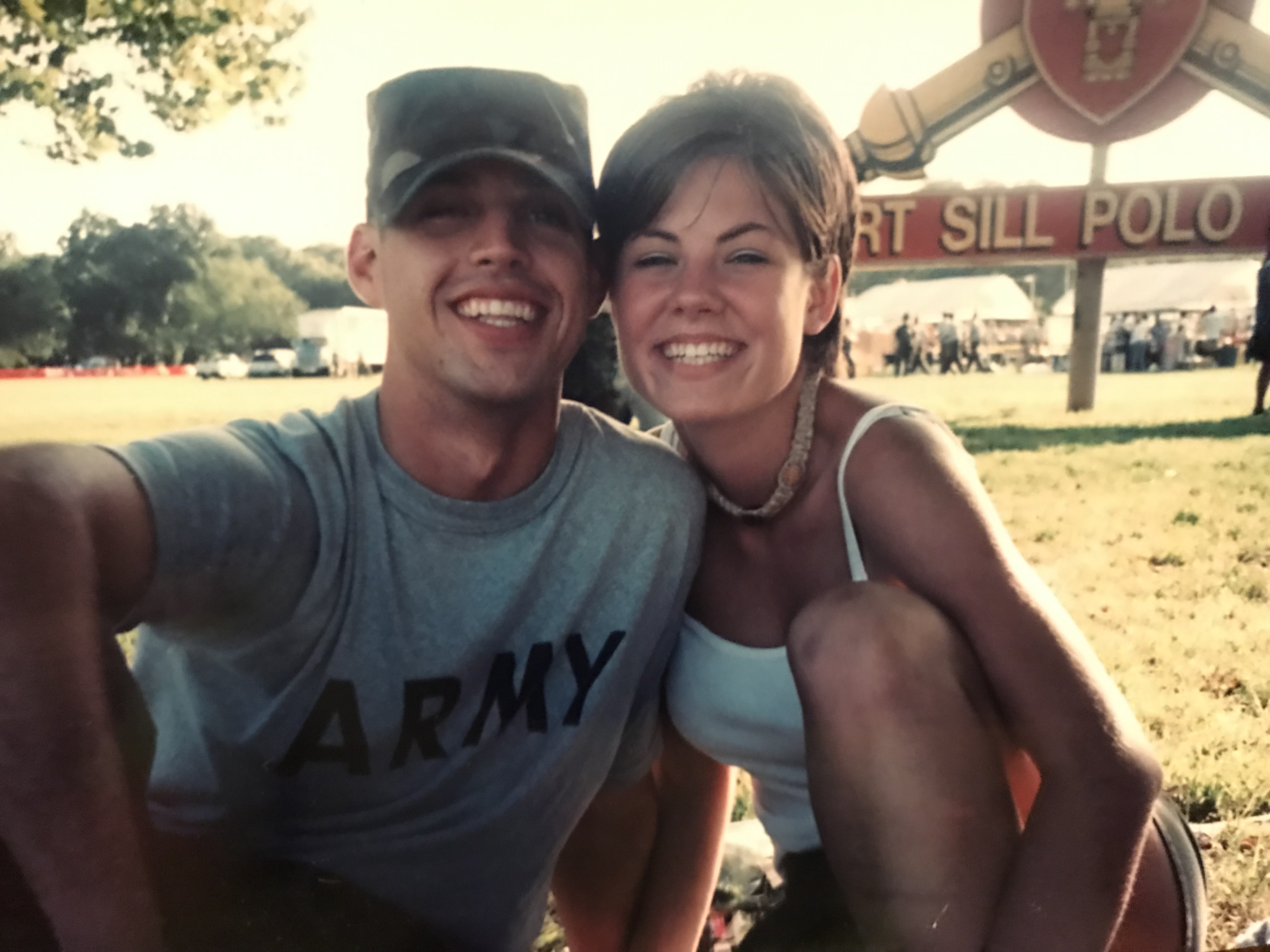
Jeri Lynn visiting a very slim Ryan one day during Army basic training. Photo: Ryan and Jeri Lynn Owen
There is often a fine line between impulsiveness and decisiveness, but in the case of Ryan and Jeri Lynn, there was no doubt; they simply knew what they wanted and took decisive action. Though at the time they may not have realized it, this trait of quick decisiveness was to become a blueprint for their lives.
Love for Country Comes at a Cost
In October 1999, the couple were sent to Ryan’s first assignment in Germany. A month later, they discovered they were going to be a family. Their first son, Taylor, was born, was born in July 2000.
Just as things seemed to be going well, Ryan was deployed to Kosovo in November 2000 and was gone for seven months. In July, just a few months after Ryan returned from Kosovo, they discovered that another Owen boy, Kole, was on the way.
This family lived a peaceful life until the Sept. 11, 2001, attacks on the World Trade Center and Washington, DC. Ryan’s original intentions to join the Army, get out in four years, and go to college were interrupted as he was ordered to remain on active duty to support the coming operations in the Gulf. In 2003, when the war in Iraq began, Ryan moved from artillery to infantry and was among the first wave of soldiers to enter into combat in Iraq.
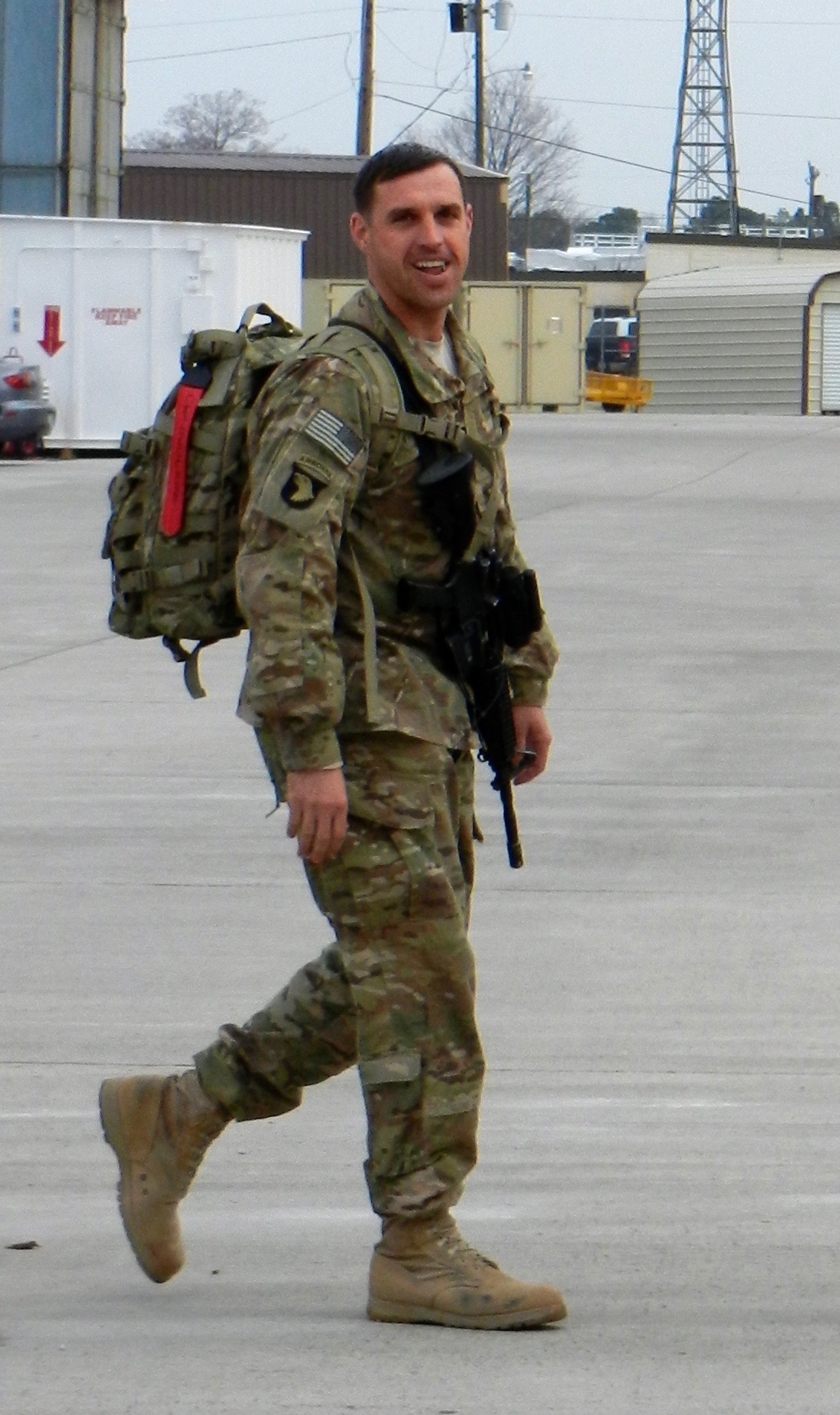
Ryan Owen, currently age 40, returning home on the last day of his many deployments. Photo: Ryan and Jeri Lynn Owen
Unbeknown to Ryan at the time of his deployment, Jeri Lynn was pregnant with their third child, Riley. He was born in November of that year and it wasn’t until the following April that Ryan met his five-month-old son. Ryan remarked that before he left, Jeri Lynn didn’t look pregnant, and how bizarre it was to come home to a new baby that he’d never met and a wife whom he’d never seen pregnant.
During years of deployment in war zones, he missed out on a lot of the children’s lives as they grew up. Ryan’s deployments also took their toll on Jeri Lynn and the children. In 2006, after returning from a deployment in Iraq, Ryan was accepted into flight school. In 2007, he went to train at Fort Rucker, AL, where, after two years, he graduated as a warrant officer and became a pilot of the Scout and Light Attack Helicopter known as the Kiowa Warrior (OH-58 D). For many years afterward, he was deployed in difficult war zones in Afghanistan.
The Things Worth Fighting For
Despite being on deployment for so many years, Ryan remained a devoted family man. One day, while driving with his family in their SUV, Ryan remembers looking in the rearview mirror and then turning to Jeri Lynn, saying, “You know, there’s seats for two more back there.”
During his deployments in war-torn regions, Ryan was emotionally moved when he witnessed the orphans in the aftermath of war. From that experience came the Owens’ decision to adopt. Soon Ryan and Jeri Lynn settled on two sisters in the Democratic Republic of the Congo.

Ryan and Jeri Lynn Owen in the Kinshasa orphanage with their adoptive daughters, Ava and Zoey. Photo: Ryan and Jeri Lynn Owen
But things were not to go easy for this adoption. When they began getting the runaround from the adoption agency, and it looked like they might lose track of the two girls, Jeri Lynn made the bold decision to fly to Kinshasa and see to it that nothing happened to the girls. A CBS production crew followed them there and covered the trip, showing the painful adoption process, from dealing with a shady adoption agency to a government that was difficult to obtain adoption papers from.
Just when it looked like they might not be able to adopt the girls, Ryan took leave from the Army and flew to join Jeri Lynn. Together, he and Jeri Lynn pushed and pushed to get the girls out and, when things looked their worst, with the possibility hanging over their heads that they would have to leave the Congo without them, a last-minute reprieve happened and the government gave them the legal permits needed to take the girls.

A happy day when the girls arrived stateside to meet the rest of their family—the boys. Photo: Ryan and Jeri Lynn Owen
Pushed to the Brink
The years of being a “very efficient monster on the battlefield” kept Ryan in a state of hypervigilance. In 2014, when a fellow soldier and good friend committed suicide, Ryan’s emotions could take it no longer, and he suffered a psychotic break. On the verge of suicide, with a severe case of PTSD, he was institutionalized.
This traumatic time put a strain on his and Jeri Lynn’s marriage that she was unable to bear, and the couple separated. They continued this way for a period of time; she with their children in New Hampshire, and he at Fort Drum in New York.
At one point, a counselor asked him about his commitment to the Warrior Ethos, and the idea of never leaving a fellow soldier on the battlefield. His counselor looked him straight in the eye and said, “You’re willing to follow the Warrior Ethos, and die for people you’ve never met, yet you’re willing to leave your family on the battlefield of life.” This statement hit home, causing him to reevaluate the importance of his relationship with his family and to do what it took on the road to recovery.
Ryan began visiting Jeri Lynn on weekends. Because of years and years of drifting apart from each other, Ryan and Jeri Lynn essentially decided to start over and began dating again. The following summer, Ryan bought another wedding ring and proposed. Later, they redid their wedding, and thus began a new chapter in their lives.
Healing on the Trail
Growing up in New Hampshire, Ryan was familiar with the Appalachian Trail. Inspired by a CNN story about Sean Gobin, Ryan read Walking with Spring. Between the CNN story and Earl Shaffer’s book, Ryan became inspired to do the same. However, since he and his family had spent so much time apart, he didn’t want to take off and be away from them for another six months. That’s when they came up with the idea to do the hike as a family.
Jeri Lynn had zero backpacking/camping experience, but she inherited an innate sense of adventure from her father, so the thought of thru-hiking the AT scared and excited her at the same time. Initially Jeri Lynn thought, “Carrying a pack on my back and being dirty was not very appealing.” What won her over was the idea of “going to do something healing… together as a family. The trail was going to be this place where the broken foundation of our lives would be removed; a place to inspect the foundation of our lives, and a time to put a magnifying glass on our foundation so we can put it back together.”
She knew the hike was going to be challenging, but she also knew that it would change the trajectory of their lives. As far as the children were concerned, they had spent so much time apart from their father over the years that they were up for anything that would allow them to spend more time with him. “Everyone had their daddy back,” Jeri Lynn explained. “We had all just been so emotionally broken and starved for peace that we knew the trail was going to be the environment for healing.”
Their adopted girls, having grown up in the Congo, had no problems adjusting to the conditions of living in the woods, but Jeri Lynn said, “They willingly embraced the trail as any other hiker, but if you asked them if they’d like to do it again, they’d probably say no.”
On March 12, 2017, the Owen family set foot on the Approach Trail at Amicalola Falls. It took them three days to do the Approach Trail. Between the weather, their lack of physical conditioning, and their excess gear—Ryan carried 78 pounds in his pack, which included dog food for his service dog and six liters of water—it didn’t take them long to learn what they needed to hike.
Ryan began to loosen up. He said his mistrust of other people—seeing them as “the enemy”—did not exist on the AT. He instantly had no problem with them. “It’s like we’re all out there doing the same thing. Like a soldier-type quality; like we’re all enduring the same pain and suffering together, which leads to a sense of camaraderie.”
The hike was also healing for Ryan’s relationships with his sons. On one occasion, his youngest son was struggling with his pack, and Ryan offered to carry it. Riley, who had few memories of his dad while growing up, didn’t want to burden his dad, but Ryan told him, “Riley, it’s OK. I’m home,” and he carried both backpacks. Because Ryan had been gone on deployments throughout most of Riley’s life, they’d never truly gotten to know one another. The hike helped them to bond for the first time. “All their lives they saw their dad carry the load of war,” Jerri Lynn said, “and now he was home to carry the load of his family.”
By the time they’d reached Carvers Gap (mile 380), Jeri Lynn said something transformative happened to Ryan: “I watched the veil of war fall off his face.” Something she’d heard was possible—post-traumatic healing—was happening right before her eyes. Apparently, the physical act of hiking with his family, coupled with the reconnection to a “community” of people, helped Ryan decompress from some of the tension he had bottled up. Jeri Lynn shared a picture of a Ryan she took that day with a big, genuine smile on his face and, with her eyes misting up, she said, “I took this photo of him because this was the first time on this hike that he genuinely smiled.”

Ryan Owen, near Carvers Gap, at the moment Jeri Lynn said the veil of war dropped from his face. Photo: Jeri Lynn Owen
Jeri Lynn also rolled her ankle that day, which meant that she needed to leave the trail long enough for it to heal. They made arrangements for Jeri Lynn to stay in Roan Mountain at the invitation of Dave MaGee, owner of The Station at 19E.
Not wanting her injury to hold them back, Jeri Lynn insisted that the rest of the family hike on, and she’d join them farther up the trail. In the meantime, she drove shuttles for The Station at 19E and experienced the beauty surrounding the Watauga Lake / Elizabethton region. Jeri Lynn said that her injury was a blessing in disguise, as it forced their children to rely totally on their father, something they’d not had the opportunity to do before. The brief time she spent in the region was to have an impact on the future of their entire family.
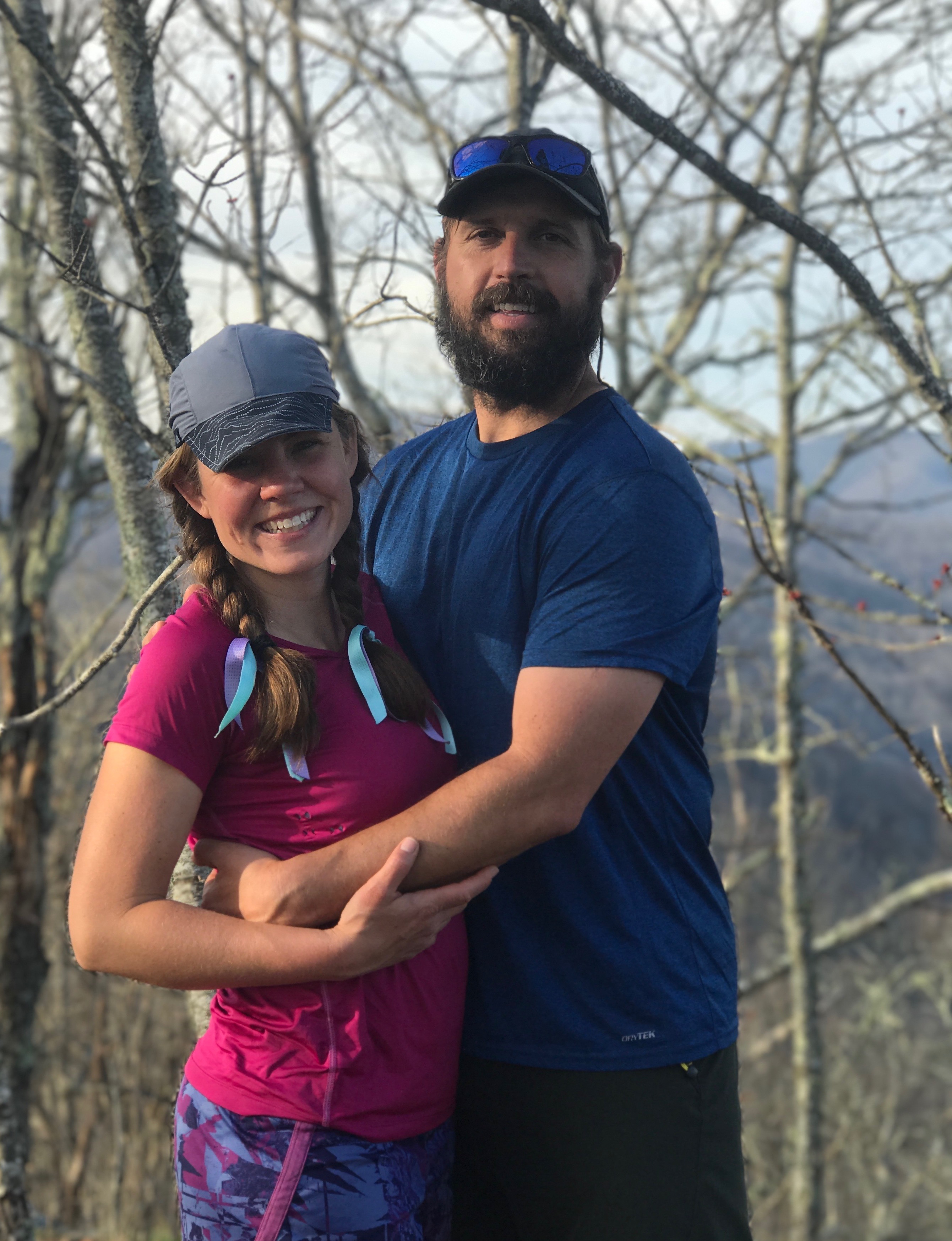
The healing power of the Appalachian Trail beginning to show on these two. Photo: Ryan and Jeri Lynn Owen
After resting for a few more days, Jeri Lynn attempted to join her family in Damascus, VA, but her ankle still wasn’t healed. When they reached Pearisburg, they decided that in order to finish the trail on time, they would give her ankle a few more days to heal, and flip to Vermont. After a few hundred more miles of hiking, Jeri Lynn had a medical issue arise and had to get off the trail for treatments. After around 700 miles, their hike was over.
Love of Hostels, Green Lumpy Places, and Sunsets
Jeri Lynn and Ryan found inspiration from author Donald Miller, who found the Christian faith had started to feel hollow and superficial. Eventually he ended up going out to “green lumpy places,” rugged mountain wilderness where he could discover a real relationship with God. Miller’s book was pivotal in helping them figure out where they belong in their spirituality. According to Jeri Lynn, “It is the foundation for how we treat people with whom we come in contact.” Since Ryan was medically retired from the Army, he and Jeri Lynn found themselves wanting to go out and find their own “green lumpy place” in the world. Because they had such fond memories of Ryan’s life-changing transformation at Roan Mountain, they believed in their hearts that this was the best place for them to start anew.
The day finally came when they decided to leave New Hampshire and move to their green lumpy place in Northeast Tennessee. Dave Magee graciously let them stay in a trailer at his hostel. In exchange, Ryan helped Dave remodel and add onto his hostel, while Jeri Lynn cleaned rooms, did laundry, and helped out with the hikers.
Before long they found their dream home. Situated at the top of a hill overlooking a gently sloping pasture, this bucolic setting was exactly what they were looking for. Their new home had everything they needed: two stories and a nice back deck, a fully finished basement, a two-car garage and wide driveway, all within a short drive of shopping and the VA hospital. And, as a bonus, it had the most amazing view of the setting sun. In addition, the AT road crossing at Wilbur Dam was three miles from their doorstep.
Once they moved into their new home, they took stock of their life. They were together as a family, Ryan was enrolled in a counseling and support group in the local VA hospital, and their children were settling into their new surroundings and schools. They were so grateful for the blessings in their lives that they decided to share it with hikers.
They quickly got busy transforming one of their upstairs bedrooms into a four-hiker bunk room, complete with mattresses on box springs and other comfortable amenities. They wanted their home to be a place where hikers could come in and make themselves at home—use the kitchen, watch TV in the den, or simply hang out on the back deck and watch the sunset. Being former long-distance hikers, Ryan and Jeri Lynn knew what hikers needed.
As far as the kids are concerned, they don’t mind hikers being in their home all the time during the hiker bubble because they can withdraw to their own bedrooms downstairs, with a fridge, a bathroom and a washer/dryer setup, so they can have their privacy anytime they want it.

It doesn’t take hikers long to feel at home in these clean, neat surroundings. Photo: Ryan and Jeri Lynn Owen
Jeri Lynn likes to think of their place as a hiker home, not a hostel: a place where hikers feel comfortable and are truly at home. Ryan said that one hiker felt so welcome in their home he paid the extra cost to be slackpacked for 13 days as he hiked through the region, staying in their home every night.
Did They Live Happily Ever After?
Between their new friends and fellow hostel owners Dave Magee of The Station at 19E, Jim Gregory of Boots Off Hostel, and Bob Peoples of Kincora Hostel, along with the hikers who pass through, there is always something for the family to look forward to. Because of this, they no longer feel the itch to move, as they did in the military. Living here allows them to balance their need for change while satisfying the familial need for stability. Having their lives centered around catering to hikers’ needs has been the best therapy for Ryan: picking them up from the trail and taking them to resupply at shopping centers keeps Ryan’s life busy and filled with purpose. Since he has such camaraderie with hikers, he simply enjoys just hanging out with them in his home and hearing the stories of their hikes.
Though Ryan and Jeri Lynn have made tremendous progress in their healing, there will never be a day that they can truly say it’s over.
Further reading about the Owens’ hike can be found here.
This website contains affiliate links, which means The Trek may receive a percentage of any product or service you purchase using the links in the articles or advertisements. The buyer pays the same price as they would otherwise, and your purchase helps to support The Trek's ongoing goal to serve you quality backpacking advice and information. Thanks for your support!
To learn more, please visit the About This Site page.

 ">
">


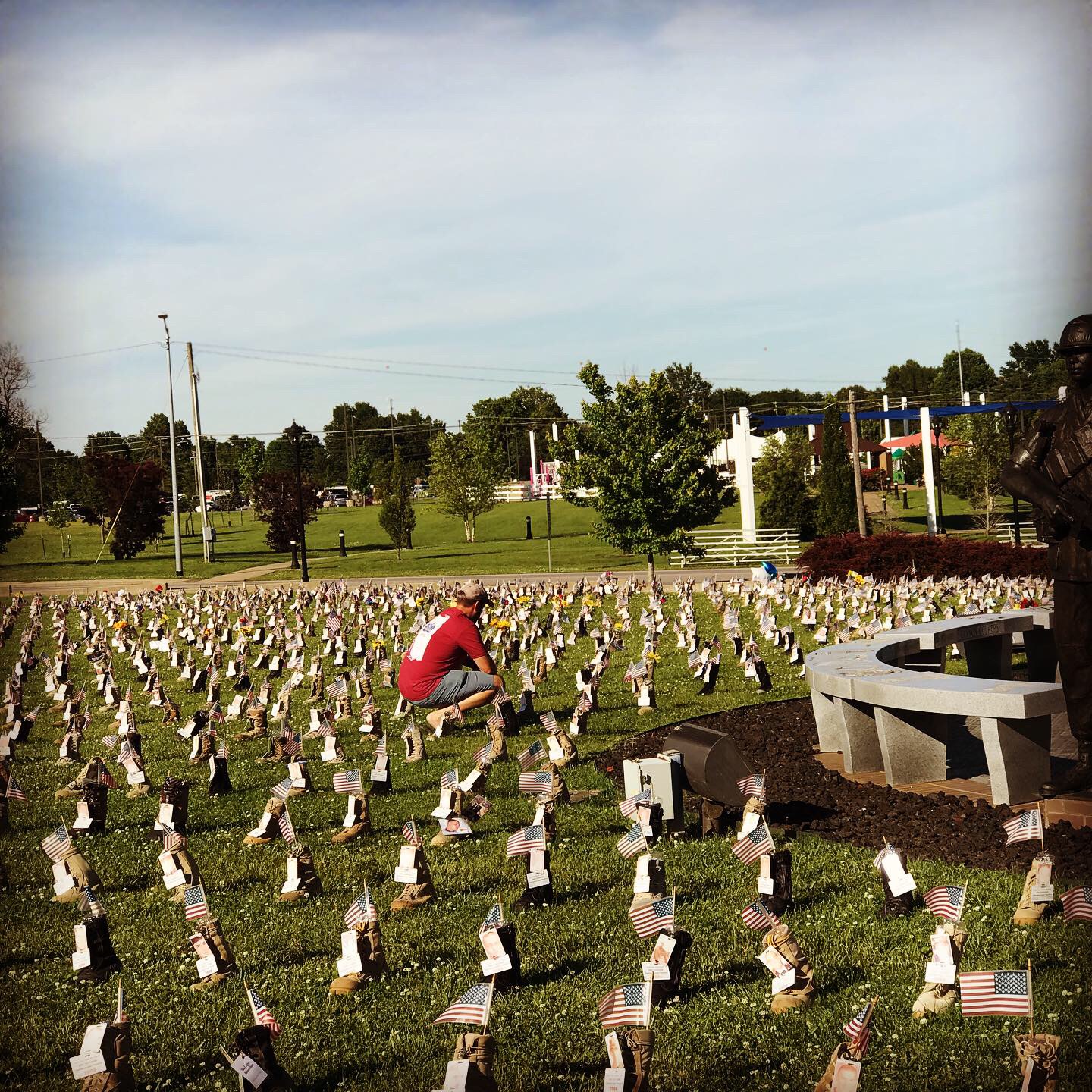
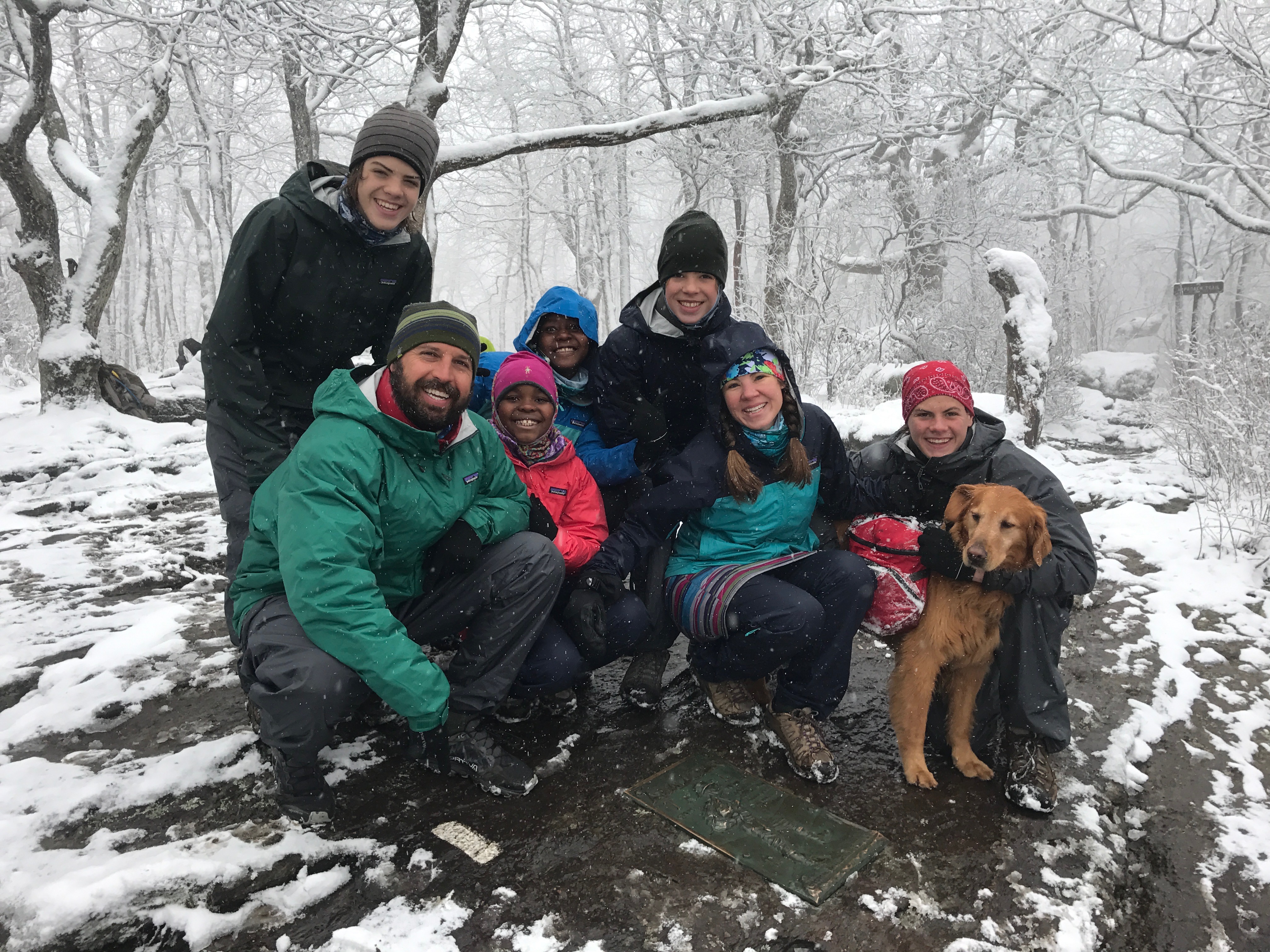
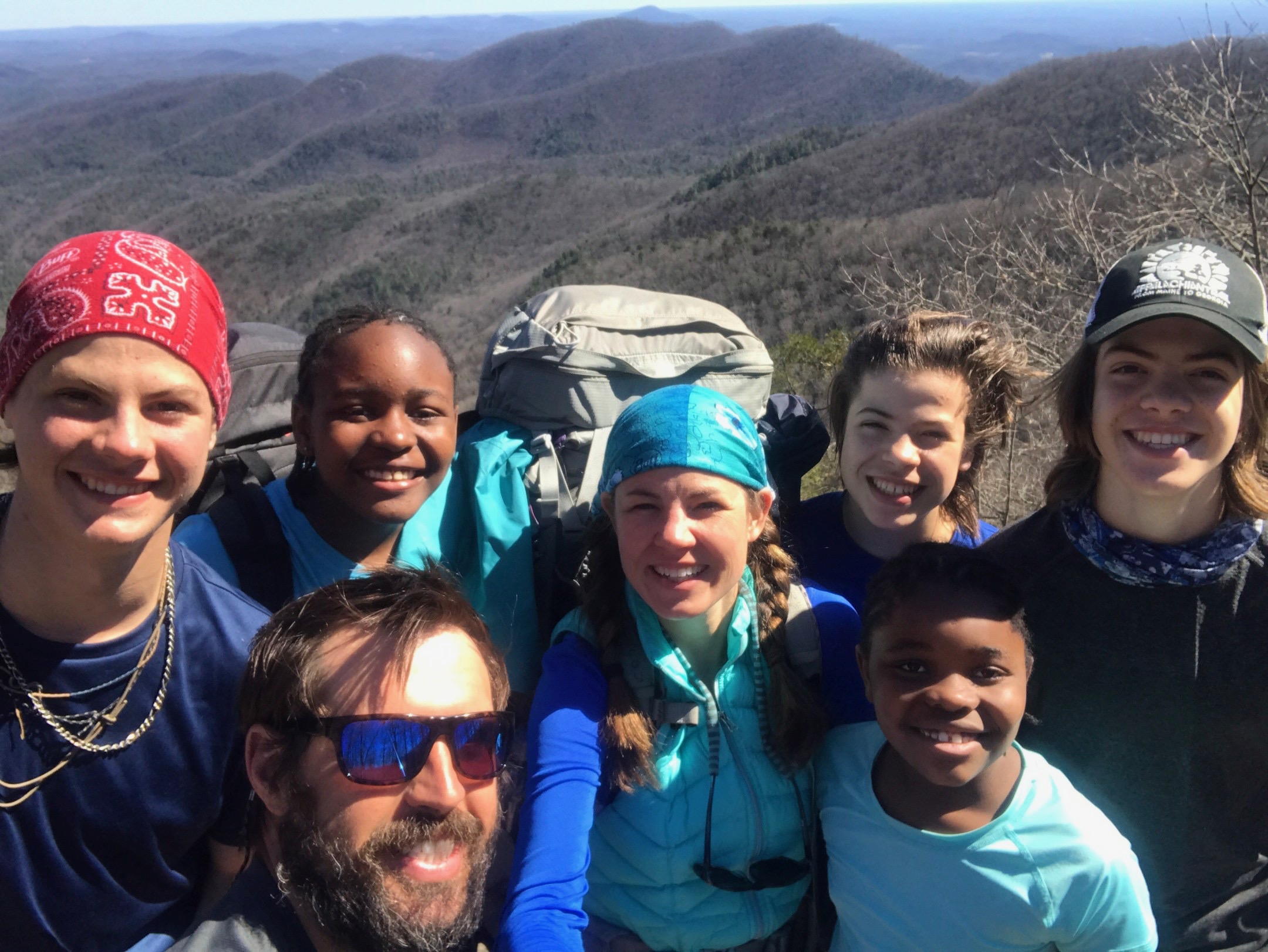






Comments 4
Thank you for sharing. That is one of the best posts I’ve read on the Trek
Ditto what Brian said.
Awesome story of healing!
I have tears in my eyes, and I am in public! Love this story from the Veteran aspect to the adopted family to the hike. Love is thicker than blood.